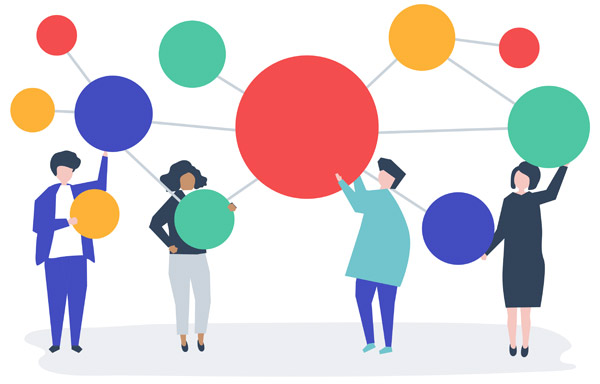ICSI CONFERENCE 2025
Overcoming differences
24-26 September
 ECREA’s (European Communication Research and Education Association) section for Interpersonal Communication and Social Interaction (ICSI) is delighted to announce that the 8th bi-annual meeting of the ICSI section of ECREA will take place in University of Navarra in Pamplona, Spain at 24.-26.9.2025.
ECREA’s (European Communication Research and Education Association) section for Interpersonal Communication and Social Interaction (ICSI) is delighted to announce that the 8th bi-annual meeting of the ICSI section of ECREA will take place in University of Navarra in Pamplona, Spain at 24.-26.9.2025.
Overcoming differences celebrates the spectrum of research themes, metatheories, methods and paradigms that have created a fruitful soil for understanding mutual interaction in interpersonal encounters. Overcoming differences means accepting differences, respecting them and seeing the huge possibilities and synergies that we have as interpersonal, interaction and communication scholars. ICSI2025 conference creates a platform for being together and discussing the nuances and potential that our discipline provides. During the conference a Young Scholar’s workshop will also take place.
IMPORTANT DATES

Submission deadline:
June 26th (midnight CET).

Acceptance announcement:
During June

Registration opens:
June 2nd

Registration closes:
August 31st
| CONFERENCE FEES | PRICE |
| Regular fee | 250 euros |
| Student fee (PhD candidates) | 150 euros |
| Student fee for the workshop | 50 euros |
The registration fee includes conference lunches and dinner, coffee breaks, and all the essentials for a memorable and enjoyable experience.

Jeffrey Hall is a professor of communication studies at the University of Kansas and a faculty associate at the Berkman Klein Center for Internet and Society at Harvard Law. His book, Relating Through Technology (Cambridge University Press), was the recipient of several awards and was featured in the New York Times, the Washington Post, and CNN. His upcoming book, The Social Biome (Yale University Press), with Andy Merolla, explores the complex ways in which our social health and well-being are intertwined. Dr. Hall has written several articles on building friendships and forming meaningful connections for the Wall Street Journal. He is the former Chair of the Human Communication and Technology Division of the National Communication Association, and the current Chair of the Interpersonal Communication Division at the International Communication Association. He is the director of the Relationships and Technology Lab at the University of Kansas and received his PhD from the Annenberg School of Communication at the University of Southern California.

Malgorzata Lahti, Ph.D., is a Senior Lecturer in Communication at the Department of Language and Communication Studies, University of Jyväskylä, Finland. With an academic background in linguistics, intercultural communication, and communication studies, she brings an interdisciplinary approach to both her teaching and research. Lahti’s work is grounded in a constitutive view of communication, and her research explores how organizational diversity is created and negotiated through everyday interaction. She adopts social constructionist and ethnomethodological frameworks to understand how identity categories are mobilized in text and talk, and how this relates to processes such as knowledge construction, professional identity negotiation, or the formation of a shared small culture. Currently, she investigates interprofessional collaboration in healthcare and has recently contributed to the development of a dialogical method for exploring identity construction through similarity and difference talk. Alongside her research, Lahti has extensive experience in designing and teaching courses on communication and intercultural communication. She is also actively engaged in pedagogical development and has co-edited volumes on teaching communication and interculturality in higher education. She is a member of the European Masters in Intercultural Communication teaching and research network and serves on the board of the Nordic Network for Intercultural Communication.
24 SEPTEMBER
ICS Room, Institute for Culture and Society, University of Navarra
Young scholars’ workshop
11.00-11.30
Opening and presentations
11.30-13.00
Discussions with the mentor
13.00-14.00
Lunch
14.00-16.00
Planning, writing and publishing: joint discussion and wrap-up
In the evening: Get-together
25 SEPTEMBER
ICS Room, Institute for Culture and Society, University of Navarra
The first conference day
9.00–10.00
Registration
10.00–10.30
Conference opening ceremony
10.30–11.30
Keynote speech: Prof. Jeffrey Hall
11.30-11.45
Short break
11.45–13.00
Session 1: Overcoming differences through listening
13.00–14.00
Lunch
14.00–15.15
Session 2: Influencing interpersonally through mediated communication
15.15-15.45
Coffee break
15.45-17.00
Session 3: The Asset of Supportive Communication
20.00
Conference dinner (Restaurant: Casa Manolo)
26 SEPTEMBER
ICS Room, Institute for Culture and Society, University of Navarra
The second conference day
9.00–10.00
Keynote speech: Dr. Malgorzata Lahti
10.00–10.15
Short break
10.15–11.30
Session 4: Becoming together: Ideals, realities and practices in team communication
11.30–12.00
Coffee break
12.00–13.15
Session 5: Creating and Overcoming Cultural Differences in Social Interactions
13.15–14.15
Lunch
14.15–15.30
Session 6: Towards (Social) Change: Influence, Interaction, and Interpersonal Dynamics
15.30-16.00
Closing remarks




